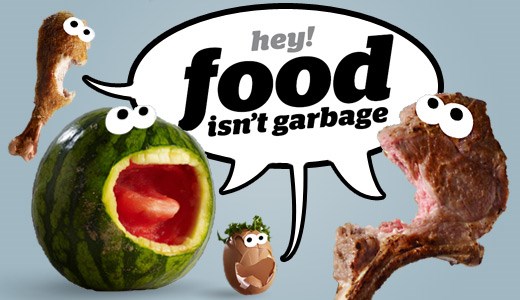Don’t even think about scraping your dirty dinner plate into the garbage come the new year.
As of Jan. 1, both the City of Vancouver and Metro Vancouver regional district are banning food scraps from disposal as garbage. That means all food scraps – including raw and cooked food, plate scrapings, leftovers, expired food, meat, bones, and dairy products – need to be recycled , instead of being thrown in the trash.
Currently, Metro Vancouver produces 1.5 million tonnes of garbage each year, 40 per cent of which is food scraps, while an additional seven per cent is organic yard waste.
For residents already receiving city garbage and yard waste collection, organic waste can be placed in your green bin for recycling. For residents of buildings without organic waste collection, their food scraps can be taken to a Food Scraps Drop Spot at participating farmer’s markets, neighbourhood houses, and community centres.
Property managers of many of Vancouver’s rental towers will have to find their own solutions for organic waste collection and removal.
Concert Properties, which manages 1,600 rental units in Vancouver, has been working for the past five years to divert as much waste from landfills as possible, and says it’s prepared for the Jan. 1 ban.
The company has produced a comprehensive recycling guide for its residents in seven different languages, and has given all of its residents countertop compost bins to help them collect organic waste.
Through a partnership with Urban Impact recycling, Concert already provides residents with 10 separate colour-coded recycling waste options in their buildings: Compost, soft plastics, mixed paper, mixed containers, styrofoam, batteries, lightbulbs, E-waste and small appliances, and landfill garbage.
“Sustainability has always been a priority for us in our buildings, and this ban serves as a catalyst for enforcing our new composting program and further waste reductions across all of our new builds,” said Jonathan Meads, Concert Properties’ manager of development and sustainability.
Since 2010, Concert has been able to divert more than 80 per cent of waste generated at its rental properties from the landfill.
“With the organic waste ban, we’re hoping to increase that to 90 per cent,” said Meads.
Because Concert had such success with its rental properties, it has expanded its recycling program to its condominiums and commercial properties.
However, many small businesses are struggling to come up with their own solutions.
Shira Blustein owns Acorn vegetarian restaurant on Main, and says she is still exploring options of what to do with the tons of organic waste the restaurant produces annually.
“I’m excited to not have to throw that out,” she says. “But we’re still not sure what to do with it.”
The restaurant has its own garden, located two blocks away at Blustein’s home, but the amount of compost the restaurant produces is far too large for the garden to handle.
“I’d love to give it to someone who needs it, or maybe a community garden,” she said.
Barring that, the restaurant will likely have to hire a private company to collect it.
“We already recycle all of our soft plastics and cardboard, so I’m all for [the organic waste ban],” she said.
According to Metro Vancouver’s website, organic materials that end up in the landfill can’t decompose properly, use up precious landfill space, create methane (a powerful greenhouse gas), and make waste-to-energy processes less efficient because of their high moisture content.
Enforcement of the organic ban won’t begin until July 1, at which point waste loads with more than 25 per cent food will be fined with a 50 per cent surcharge on dumping fees.
By 2016, the amount of acceptable food scraps will be reduced to 10 per cent, and then to five per cent in time, according to Metro Vancouver’s website.
For more information about the organic waste ban, visit Vancouver.ca



